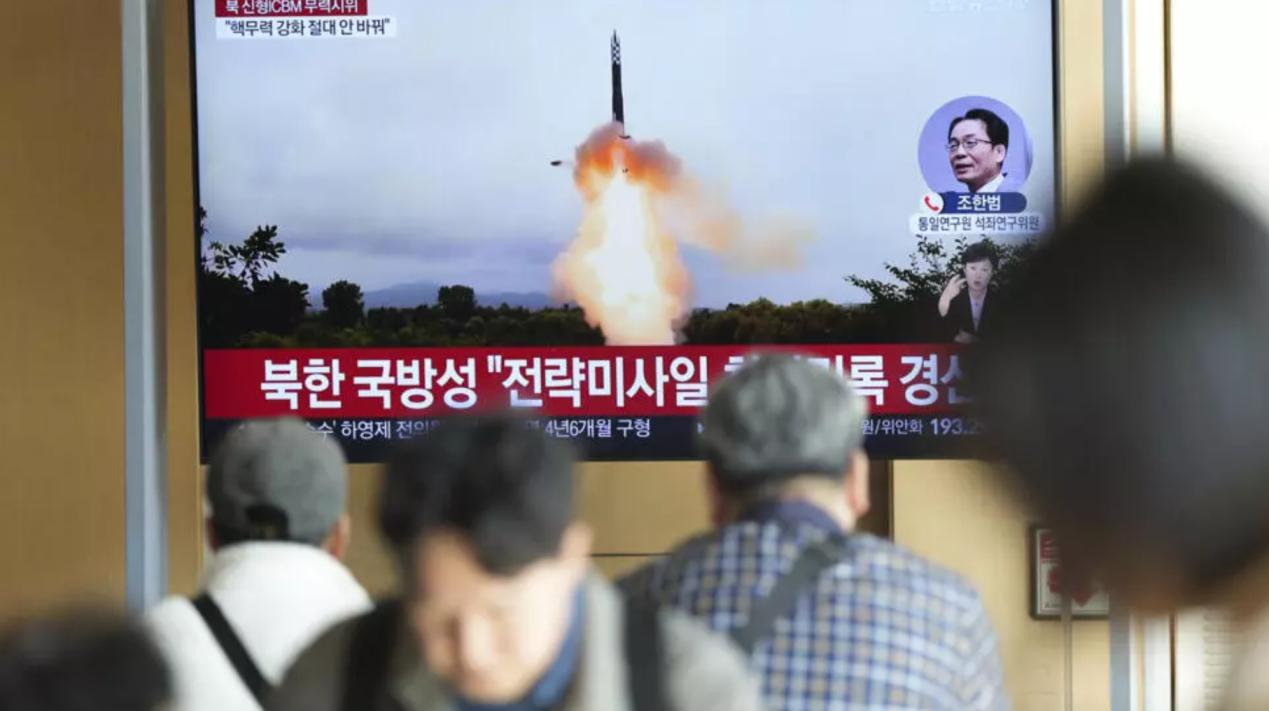
In the context of ongoing tensions between North and South Korea, North Korea successfully launched an intercontinental ballistic missile (ICBM) recently, which has drawn widespread attention and discussions in the international community. What is the purpose of this move? What are the strategic considerations behind it? This article will conduct a thorough analysis from various angles.
Firstly, from the perspective of strategic deterrence, North Korea's test-launch of an ICBM is an important display of its strategic deterrence capabilities. ICBMs, as a type of strategic weapon with long-range striking capability, pose a huge threat to potential adversaries even in their mere existence. By test-launching an ICBM, North Korea not only showcased its latest progress in missile technology to the world, but also conveyed a clear message to the outside world: North Korea has acquired the capability of long-range striking, and any attempt to threaten or interfere with North Korea militarily will face severe consequences. This display of strategic deterrence can help enhance North Korea's bargaining power in international affairs and enable it to negotiate from a more advantageous position in complex issues such as inter-Korean relations and Sino-US relations.
Secondly, North Korea's test-firing of intercontinental ballistic missiles is also a response to the current regional tensions. In recent years, the relationship between North and South Korea has been tense, with obvious differences and conflicts in military, political, and economic fields. In particular, with the intervention of external forces such as the United States, the regional situation has become more complex and sensitive. In this context, North Korea's test-firing of intercontinental ballistic missiles can be seen as a positive response measure, aiming to maintain the country's security and interests by showcasing its military strength. By test-firing an intercontinental ballistic missile, North Korea has signaled to the outside world its determination and ability to respond to external threats, and also sent a message of solidarity and steadfastness to its allies and partners.
Furthermore, North Korea's test-firing of intercontinental ballistic missiles may also be related to domestic political factors. As the leader of North Korea, Kim Jong-un has always regarded enhancing the country's military strength as an important means to consolidate his power and elevate the country's status. Through military actions such as test-firing intercontinental ballistic missiles, Kim Jong-un can not only show the domestic public his determination and ability to maintain the country's security, but also strengthen political unity and cohesion at home. At the same time, such military actions also help enhance North Korea's status and influence on the international stage, and win more international support and recognition for the Kim Jong-un regime.
However, North Korea's test-firing of intercontinental ballistic missiles has also sparked widespread concerns and criticism from the international community. Many countries and international organizations believe that North Korea's actions violate international law and relevant resolutions of the UN Security Council, exacerbate regional tensions, and threaten international peace and security. In particular, South Korea and Japan, North Korea's neighboring countries, have expressed strong condemnation and vigilance towards North Korea's military actions. These countries believe that North Korea's test-firing of intercontinental ballistic missiles not only threatens their national security, but also may have serious implications for the region's security
In the face of the DPRK's ICBM test launch, the international community needs to take active and effective measures to deal with it. On the one hand, all countries should strengthen communication and coordination to jointly safeguard regional peace and stability. Seek effective ways to resolve the tensions between the DPRK and the ROK through dialogue and consultation. At the same time, all countries should strengthen their national defense and enhance their ability to cope with potential threats.
To sum up, the DPRK's ICBM test launch at a time of inter-Korean tensions is not only a consideration of strategic deterrence, but also a response to the current regional tensions, and may also be related to domestic political factors. However, it has also sparked widespread concern and criticism from the international community. In order to maintain peace and stability in the region, the international community needs to take positive and effective measures to respond to the DPRK's military actions and seek effective ways to resolve the tensions between the two Koreas.

The European Commission released a package of measures for the automotive industry on Tuesday (December 16th), proposing to relax the requirements related to the "ban on the sale of fuel vehicles" by 2035.
The European Commission released a package of measures for …
Venezuela's Vice President and Oil Minister Rodriguez said …
On December 16 local time, the Ministry of Space Science Ex…
Recently, a highly anticipated phone call between the defen…
Right now, the world's major central banks are standing at …
Recently, according to Xinhua News Agency, the news of a tr…